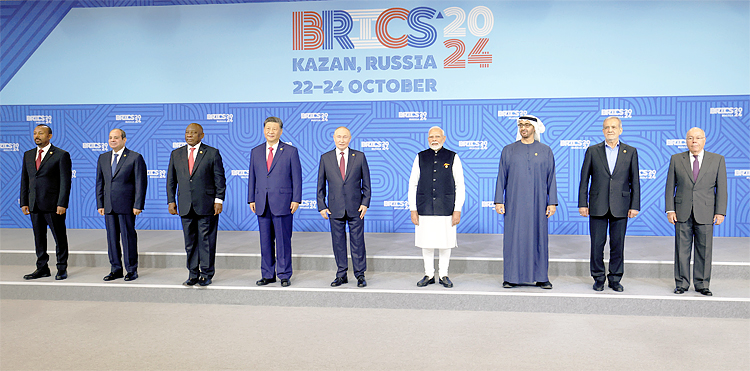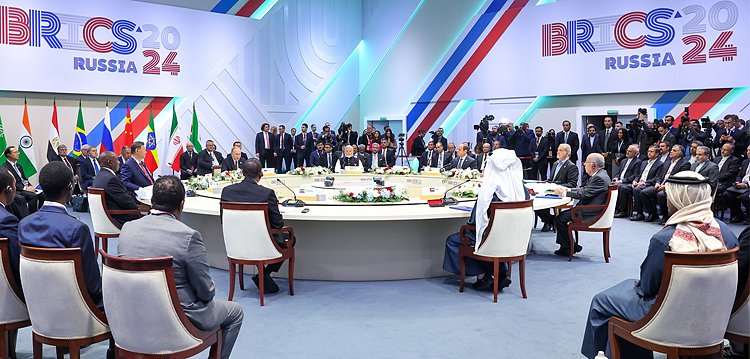INDIAN ARMED FORCES CHIEFS ON OUR RELENTLESS AND FOCUSED PUBLISHING EFFORTS

The insightful articles, inspiring narrations and analytical perspectives presented by the Editorial Team, establish an alluring connect with the reader. My compliments and best wishes to SP Guide Publications.

"Over the past 60 years, the growth of SP Guide Publications has mirrored the rising stature of Indian Navy. Its well-researched and informative magazines on Defence and Aerospace sector have served to shape an educated opinion of our military personnel, policy makers and the public alike. I wish SP's Publication team continued success, fair winds and following seas in all future endeavour!"

Since, its inception in 1964, SP Guide Publications has consistently demonstrated commitment to high-quality journalism in the aerospace and defence sectors, earning a well-deserved reputation as Asia's largest media house in this domain. I wish SP Guide Publications continued success in its pursuit of excellence.
- A leap in Indian aviation: Prime Minister Modi inaugurates Safran's Global MRO Hub in Hyderabad, Calls It a Milestone
- All about HAMMER Smart Precision Guided Weapon in India — “BEL-Safran Collaboration”
- India, Germany deepen defence ties as High Defence Committee charts ambitious plan
- True strategic autonomy will come only when our code is as indigenous as our hardware: Rajnath Singh
- EXCLUSIVE: Manish Kumar Jha speaks with Air Marshal Ashutosh Dixit, Chief of Integrated Defence Staff (CISC) at Headquarters, Integrated Defence Staff (IDS)
- Experts Speak: G20 Summit: A Sign of Global Fracture
BRICS for Global Equity
The BRICS Kazan summit has laid the groundwork for a more equitable world order, with plans for a unified clearing system, a BRICS Commodity Exchange, and a gold-backed BRICS currency
 |
The Author is former Chief of Staff of a frontline Corps in the North East and a former helicopter pilot. He earlier headed the China & neighbourhood desk at the Defence Intelligence Agency. He retired in July 2020 and held the appointment of Addl DG Information Systems at Army HQ. |

A question that often arises is why developmental divide persists even after colonialism ended by 1960s after WW II and the cold war in 1991? Are the prosperous North more resource rich, more hard working and more industrious than what is loosely called the Global South? How have the former colonial powers and the new age hegemon, the US, continued to prosper even when exploitation and extraction from the colonies should have come to an end with end of colonialism?
Neo-Colonial Exploitation of the Global South
Some of the answers to these profound questions are coming to the surface. There can be a range of reasons for the emerging economies of global South to have remained poor despite being resource rich and despite being populated by hardworking masses. Three major external factors have had the most pernicious impact on their growth; financial loot perpetrated through offshore tax havens established mainly by the British; resource loot through exploitative arrangements entered by France while exiting its colonies in Africa; and finally the financial system of petrodollar as the global reserve currency operated and muscularly protected by the US through the Bretton Woods institutions and through direct wars, assassinations, engineered regime changes, coups and coloured revolutions.
The BRICS nations have begun challenging US hegemony, with initiatives like national currency-based trade deals and the development of alternative financial systems, potentially leading to de-dollarisation
Colonialism would graduate into neo-colonialism, but not much would change in the exploitation of native populations. The US has taken a central role in the practice of neo-colonialism. The US interests in oil in the Middle East has led to one of the most atrocious examples of neo-colonialism.
The coups in Africa and the anti-French sentiments sweeping the region are a stark pointer to the extractive arrangements that France established through the Franc CFA (French Colonies in Africa) since 1945. With binding and exclusive rights to exploit the strategic mineral of these countries, France imported Uranium, Cobalt, Oil and Gold not in US dollars or Euros which it has to earn but in Franc CFA which it prints for these countries. In a sense France got these resources almost free.
US Domination of the Global Financial System
The US delinked the US$ from gold in August 1971 going back on the commitment that had been the foundation of the international monetary system created in 1944 at Bretton Woods establishing the World Bank and IMF. The petrodollar system allowed the US to export dollars to the world by purchasing oil, manufactured goods and commodities, and other countries return to the US by purchasing American weapons, American high-tech monopolised by mega-corps like Microsoft and Google and American debt. Simply put, it just prints money to sustain its 'American way of life'. Rich countries continued to rely on a large net appropriation from the global South. One estimate suggests that over the whole period from 1960 to today, the drain totalled $62 trillion in real terms.
Saudi Arabia's refusal to renew the 50-year-old petrodollar agreement in July 2024 indicates a significant shift away from the US dollar's dominance in global oil trade
The Ukraine crisis which saw the US seize $300 billion of Russian assets in western banks came as a rude shock to the rest of the world, a proverbial last straw and an urgent wake-up call. The SWIFT and Euroclear international payment systems dominated by the west alongside the Chicago Commodity Exchange, the London Metal Exchange and the International Group or 'the IG' which insures global shipping including the oil tankers enabled the US led west to dictate to the rest of the world on how they traded, fixed commodity and grain prices and enforced sanctions as per the whims and fancies of the US if any country dared to fall out of the line. This was euphemistically called the international law. The consequences of such sanctions have been catastrophic.

In the past, individual countries and leaders have dared to challenge the US hegemony and most have had to bite the dust, sometimes through debilitating sanctions leading to bankruptcy and chaos. Venezuela, the country with world's largest oil reserves, is virtually bankrupt and has seen millions of its citizens flee the country in distress. Sweeping sanctions were first imposed in 2008 when then populist President Hugo Chavez nationalised the oil industry besides steel, telecom, electricity, gold mining, banking and agriculture in which US corporations had substantial if not controlling stakes.
The expansion of BRICS, adding countries like Egypt, Ethiopia, UAE, Iran, and Saudi Arabia, signals a growing desire among nations to achieve financial sovereignty and reduce dependence on the US-led financial system
Often it has been through outright elimination of leaders such as Saddam Hussein and Muamar Gaddafi. Or through US inspired regime change operations like the 1953 Iranian coup d'état, an US and British-instigated, Iranian army-led overthrow of the democratically elected Prime Minister Mohammad Mosaddegh who sought to audit the documents of the Anglo-Iranian Oil Company (AIOC), a British corporation now part of BP, to verify that AIOC was paying the contracted royalties to Iran, and to limit the company's control over Iranian oil reserves.
The BRICS Shift Towards Multipolarity
This time the challenge is coming from a collective. The BRICS have picked up the cudgels on behalf of the global south. A number of events in the past year have helped it to gather winds in its sails. The Russia-India oil trade since the Ukraine war in respective national currencies instead of dollar, circumventing US sanctions, may have been a major catalyst. Others have followed up like the Brazil-China trade deal and Saudi-China oil deal, challenging Dollar's stranglehold over global trade. An indicator of which way the wind was blowing came in July 2024 when Saudi Arabia, a close ally of the US, refused to renew the 50-year-old petrodollar agreement, first established in 1974, that required oil sales from Saudi Arabia to be conducted exclusively in US dollars.
The New Development Bank, along with initiatives like 'BRICS Pay' and the proposed gold-backed BRICS currency, aims to reshape the global financial landscape by offering an alternative to the neo-colonial financial institutions dominated by the West
The just concluded BRICS Kazan summit has delivered some outcomes that can exponentially alter the financial and trading landscape and help usher in a more equitable world order, free of the neo-colonial exploitative global financial institutions. The expanded BRICS with Egypt, Ethiopia, UAE, Iran and Saudi Arabia as the new members has a line-up of 34 countries that desire membership including NATO member Turkey, to achieve financial sovereignty, frustrated with constant bullying by the US led west to toe their agenda "or else...".
The New Development Bank, a unified clearing and depository 'BRICS Pay' system, the BRICS Commodity Exchange and a gold backed BRICS currency are in the works. These will radically alter the financial landscape and lead to de-dollarisation of the global economy. A more just, fairer and equitable multipolar world may hopefully emerge, shepherded in no small measure by the collective efforts of the BRICS. The summit logo, 'Cooperation in Transformation', aptly sums up the alternative to the 'US-fuelled conflicts for domination'.





